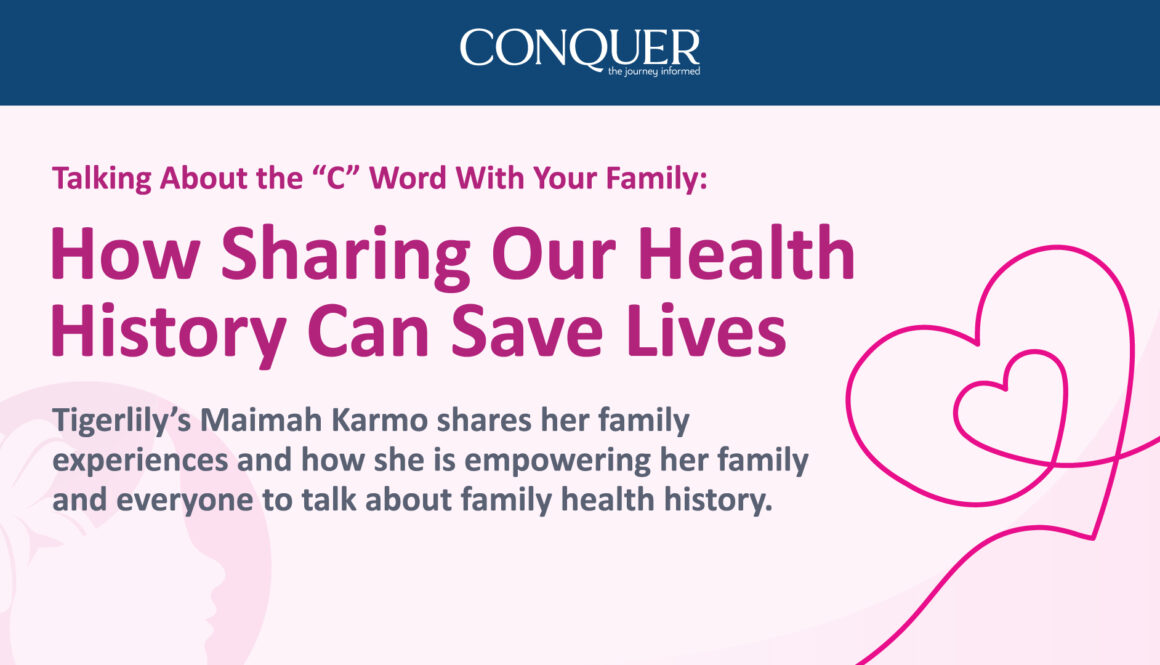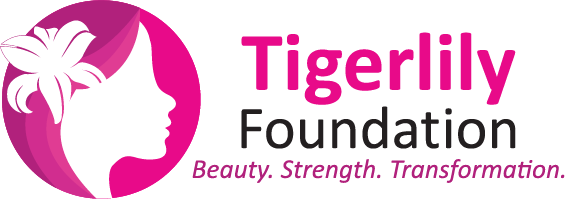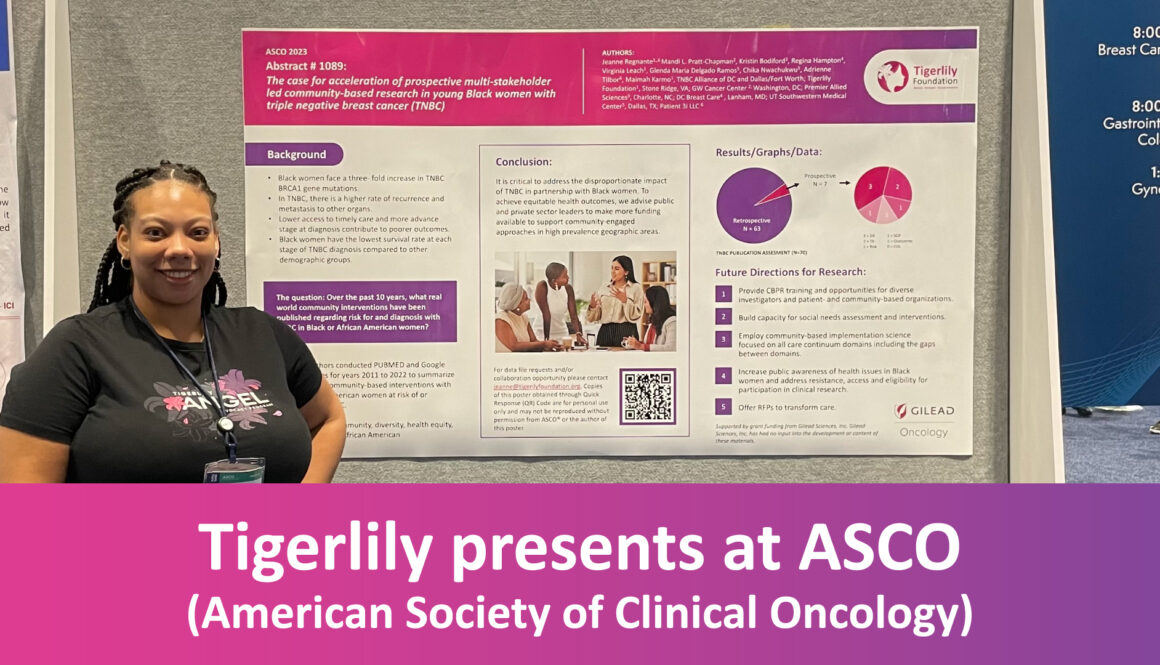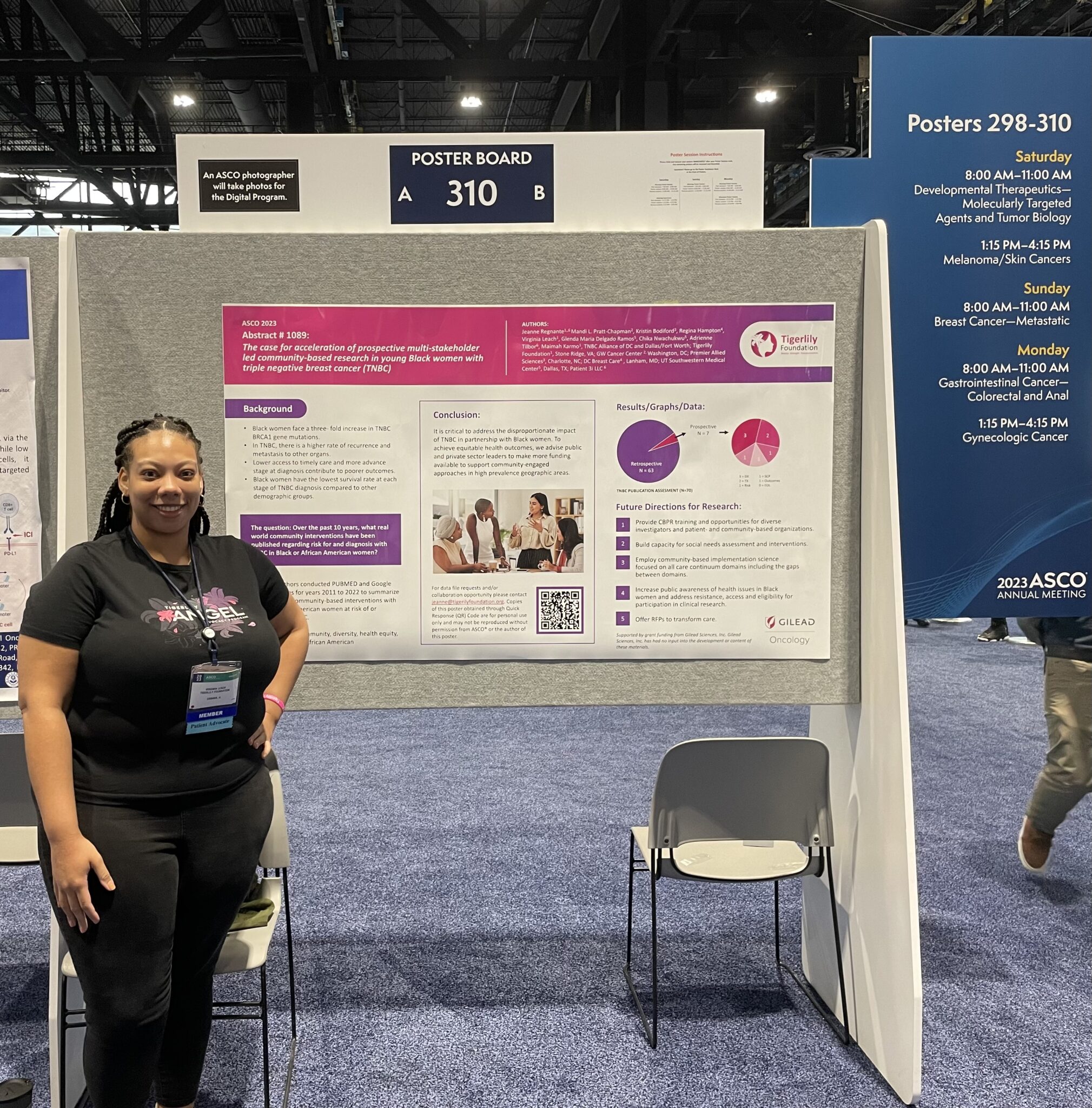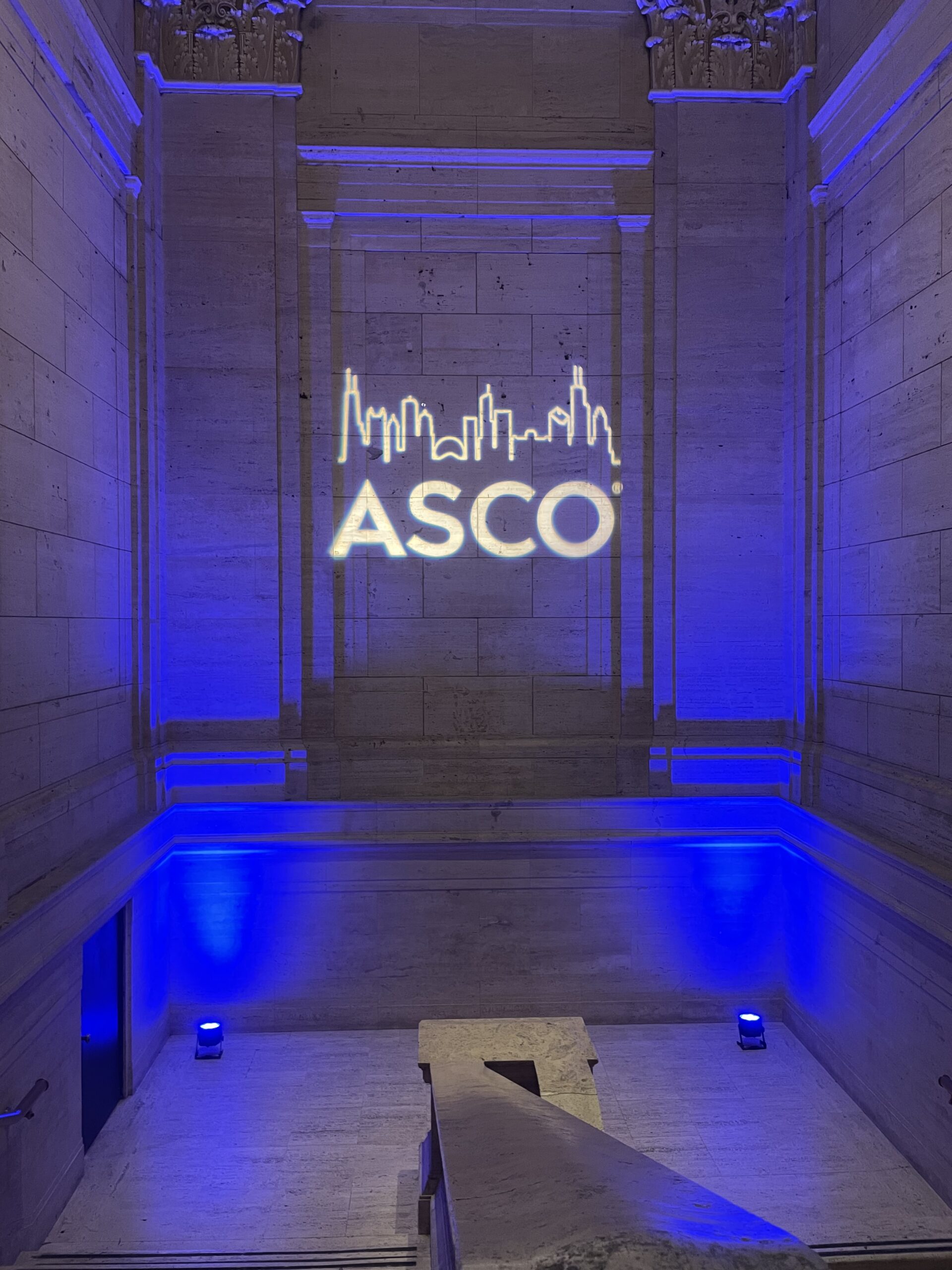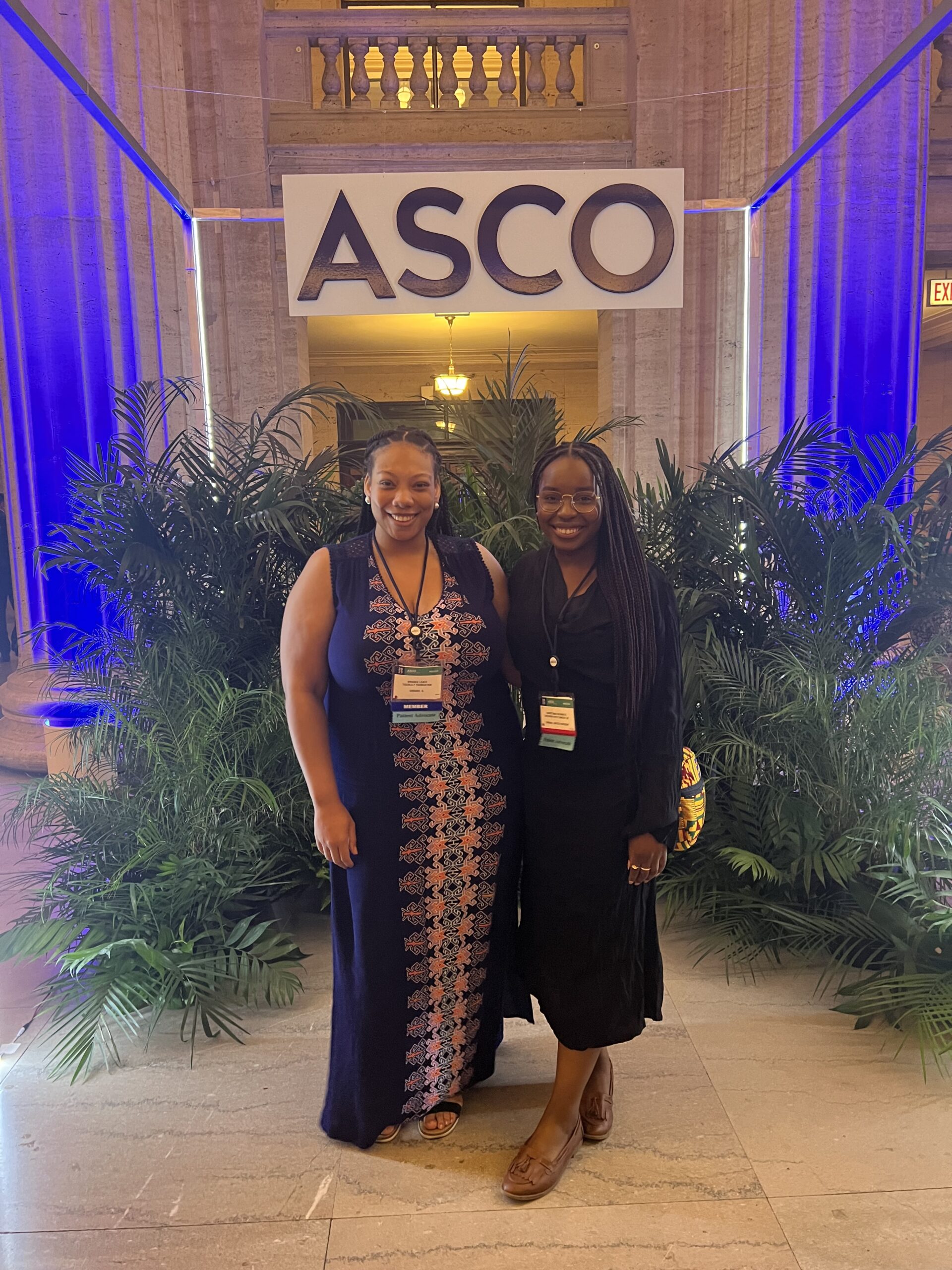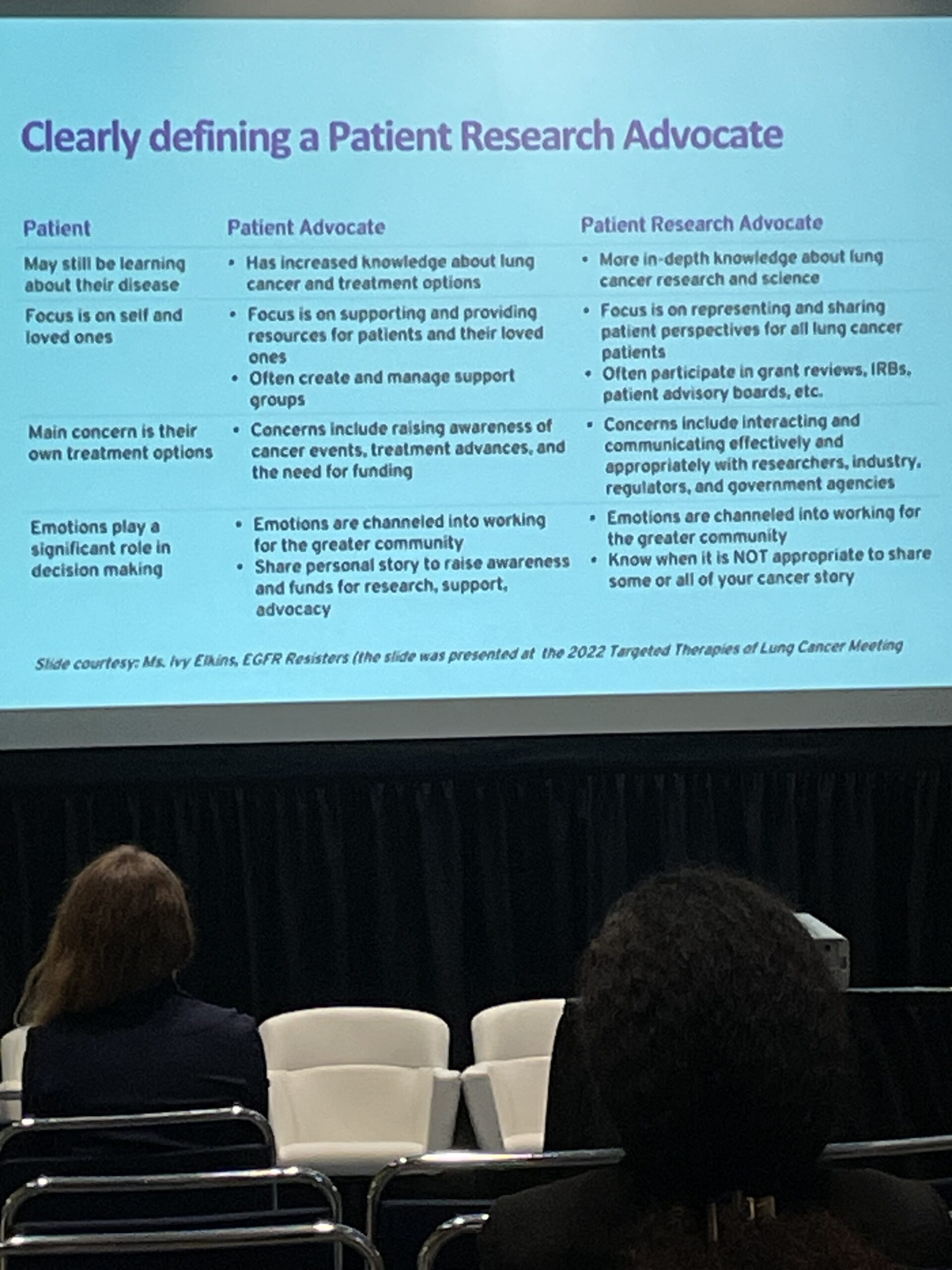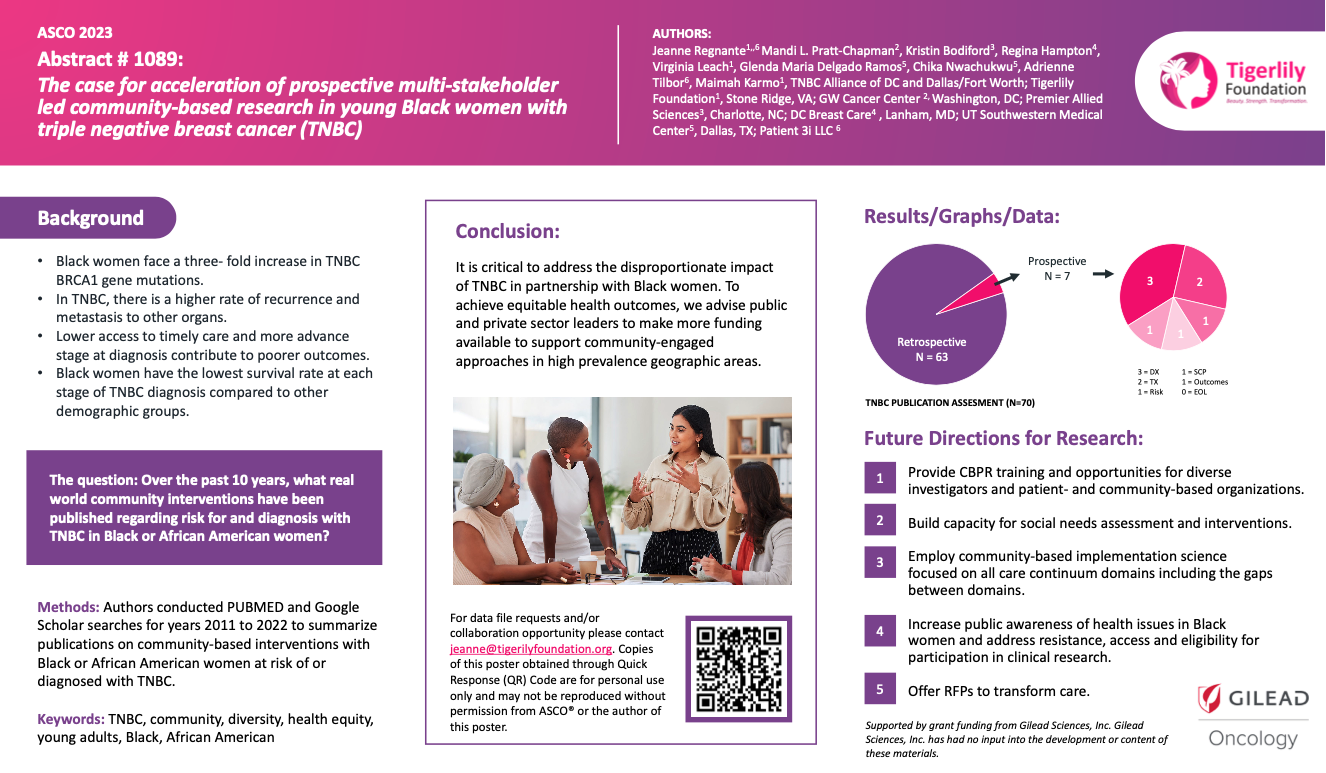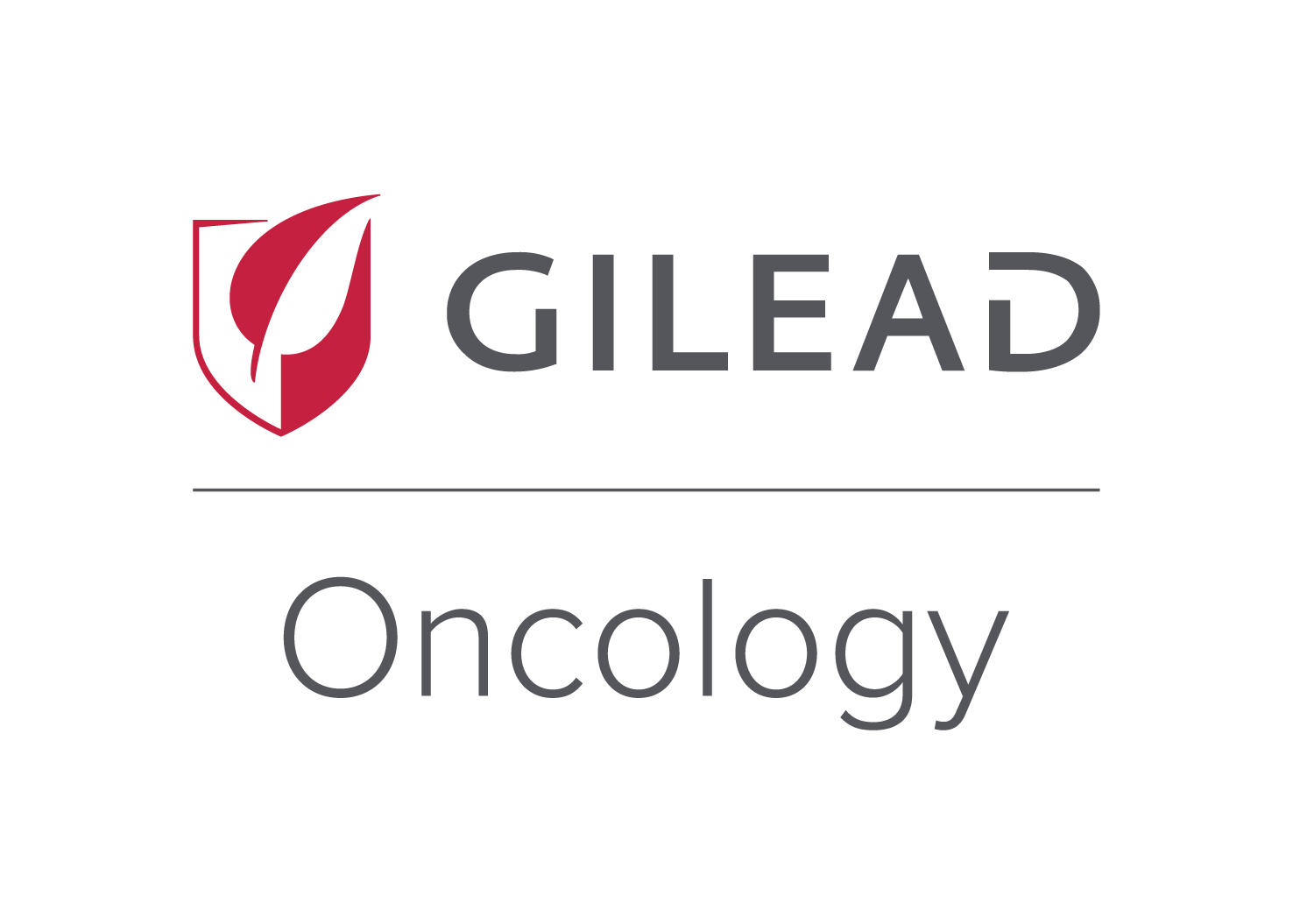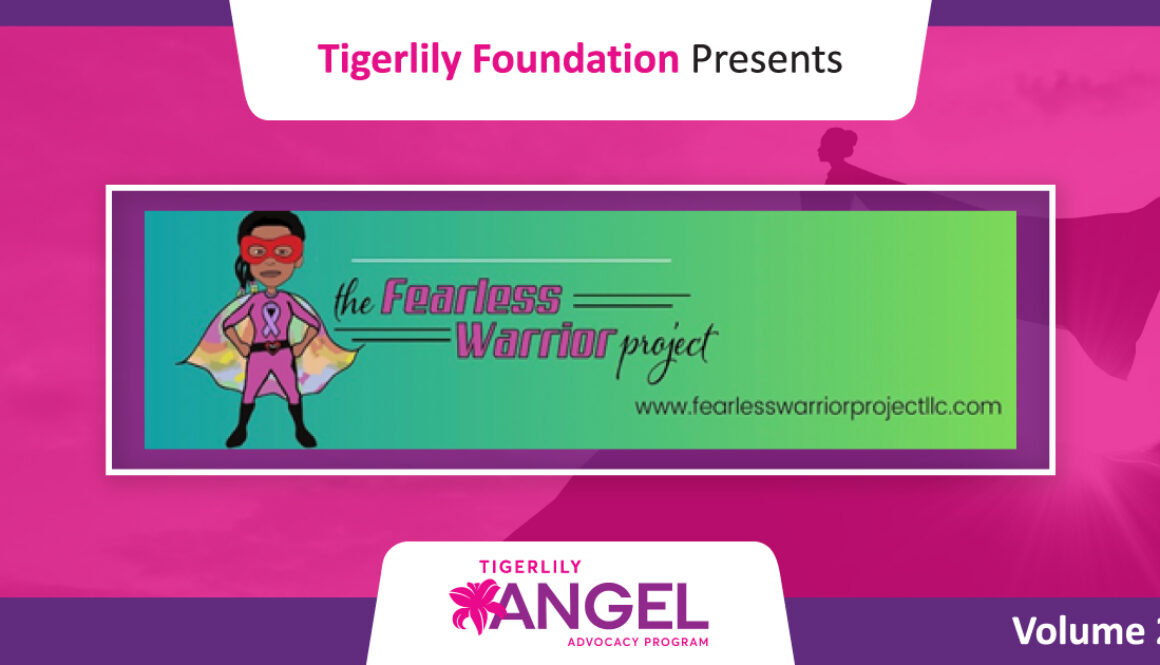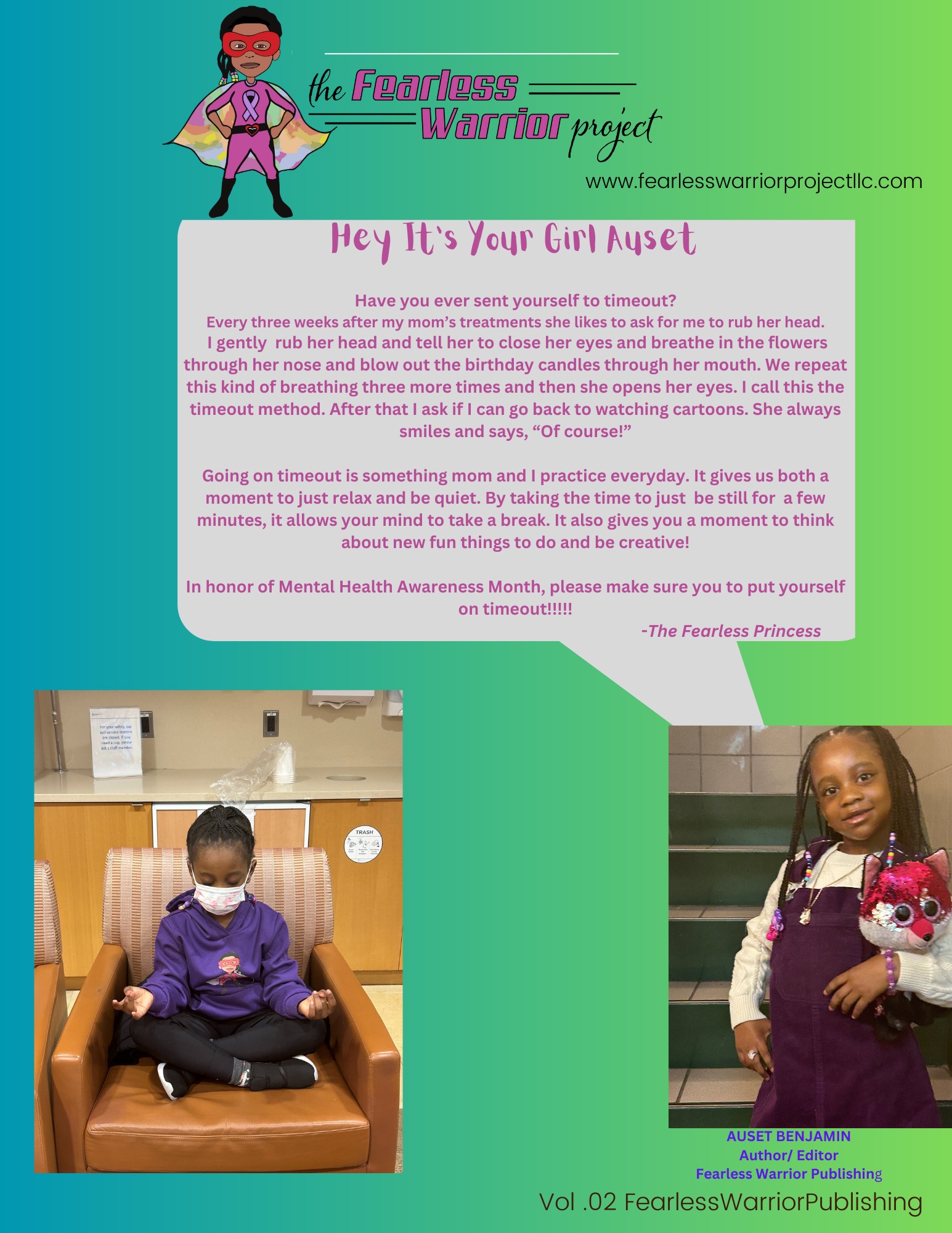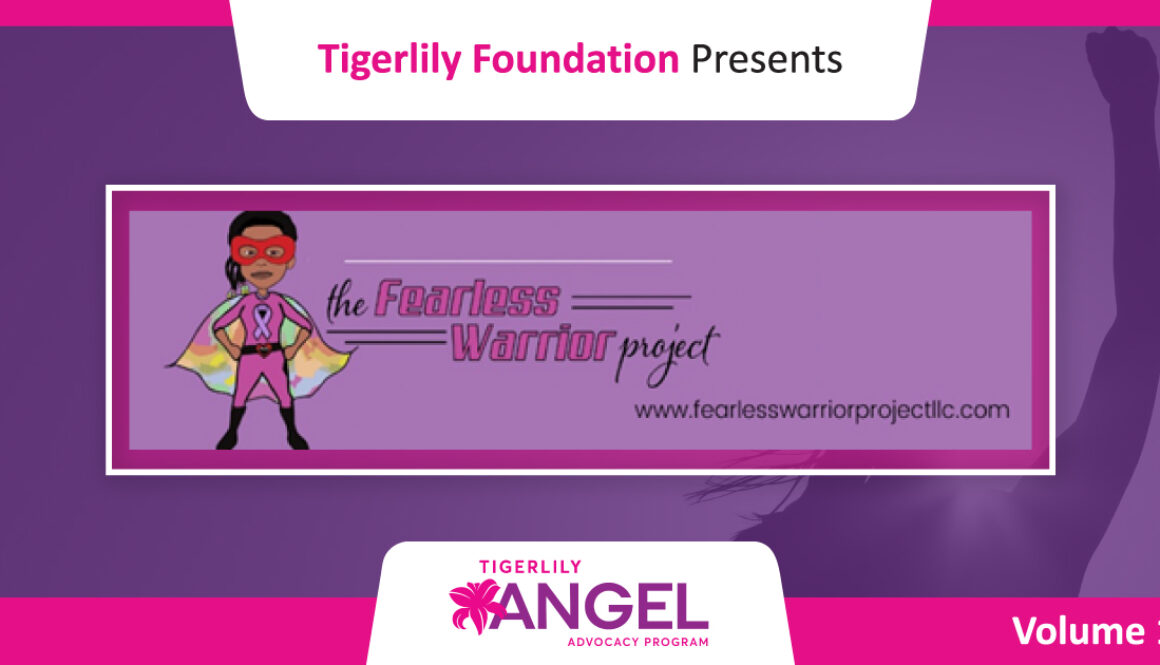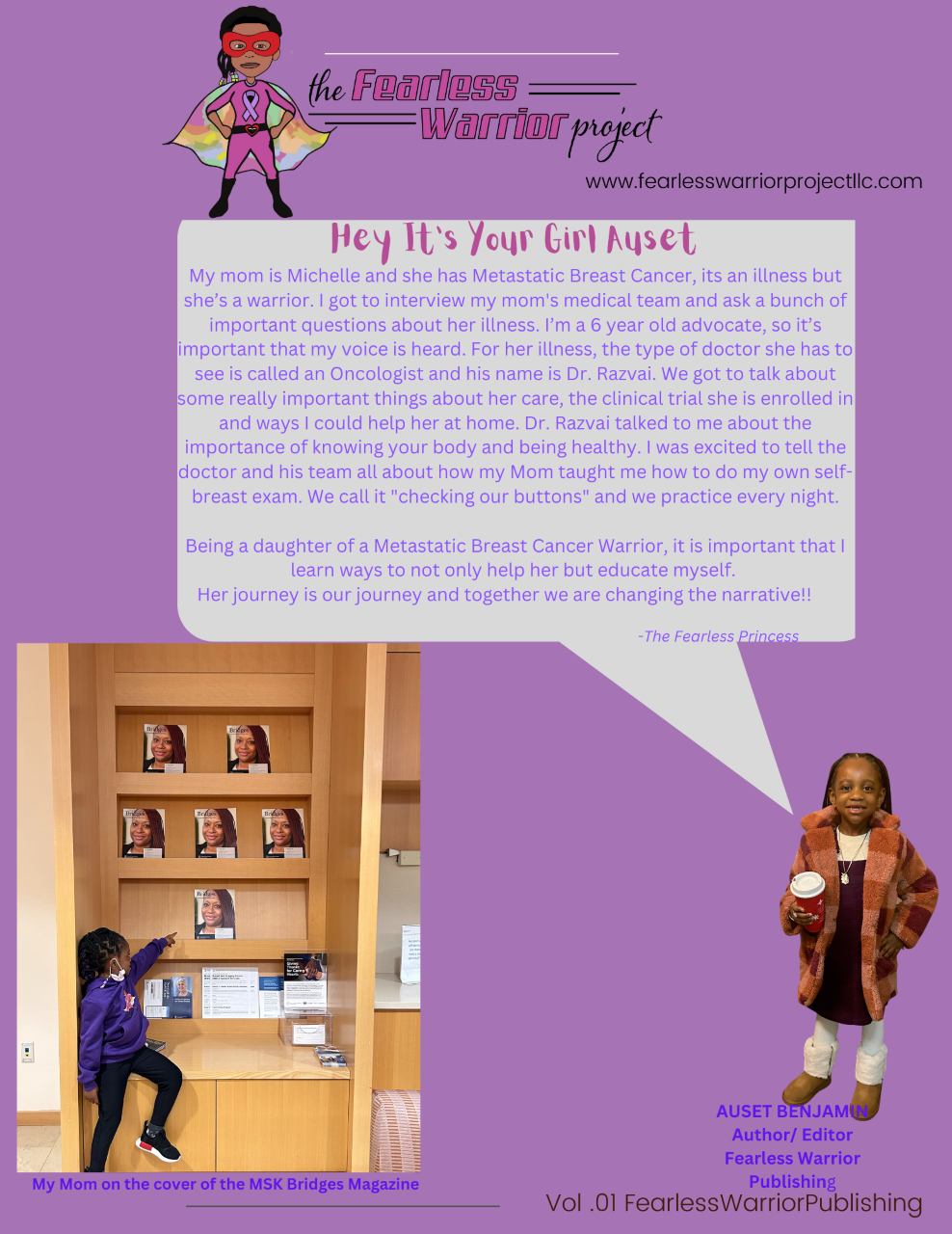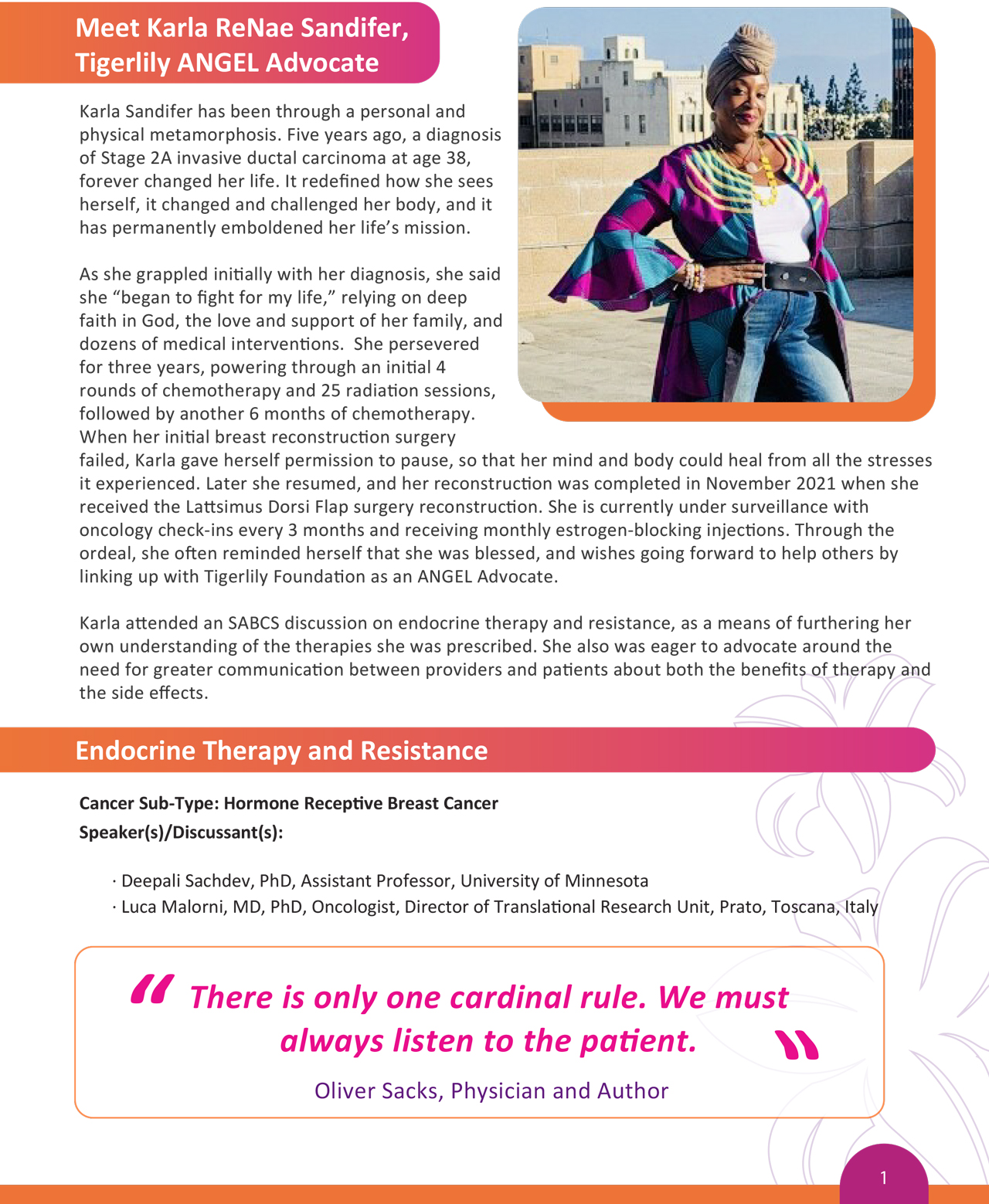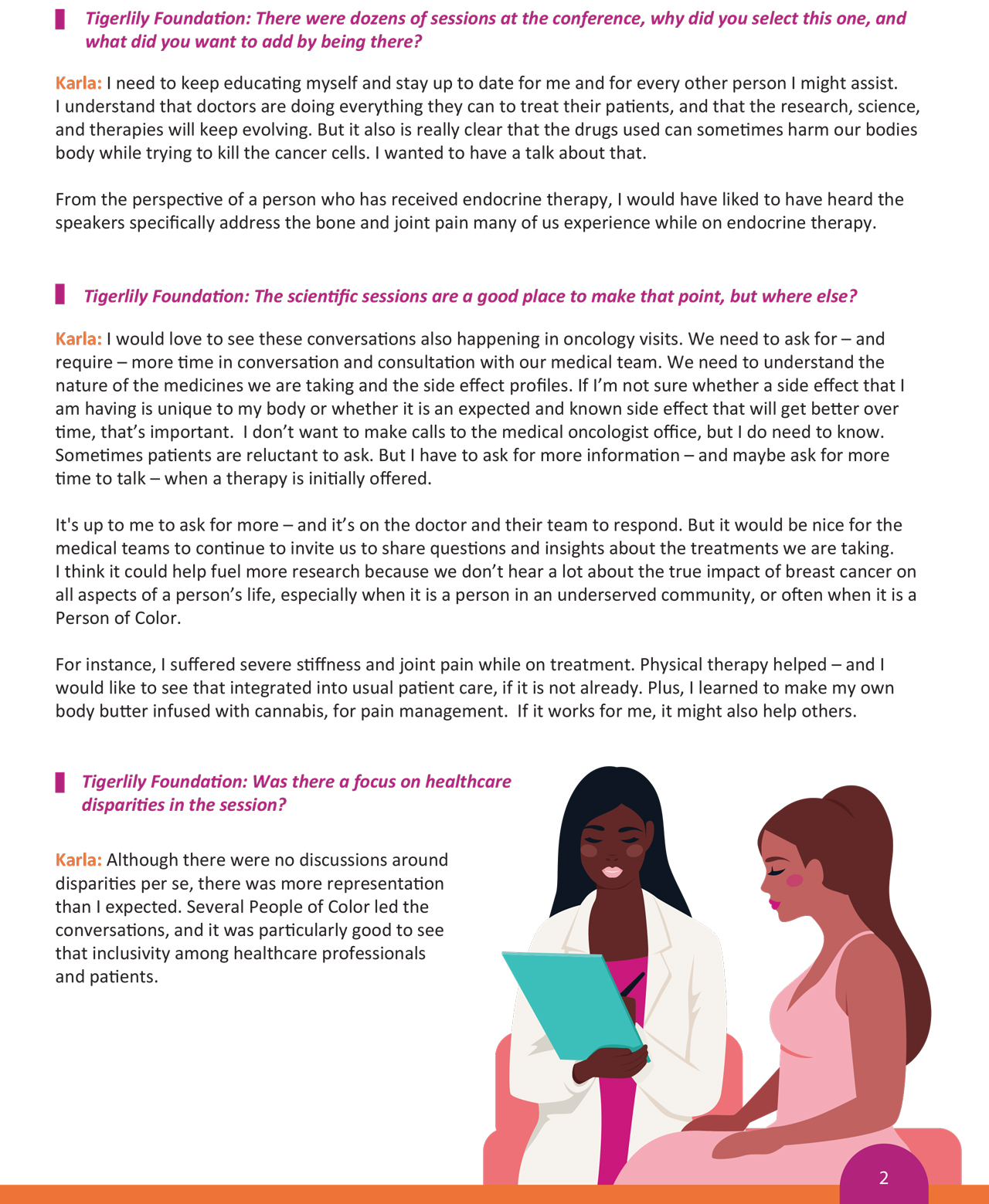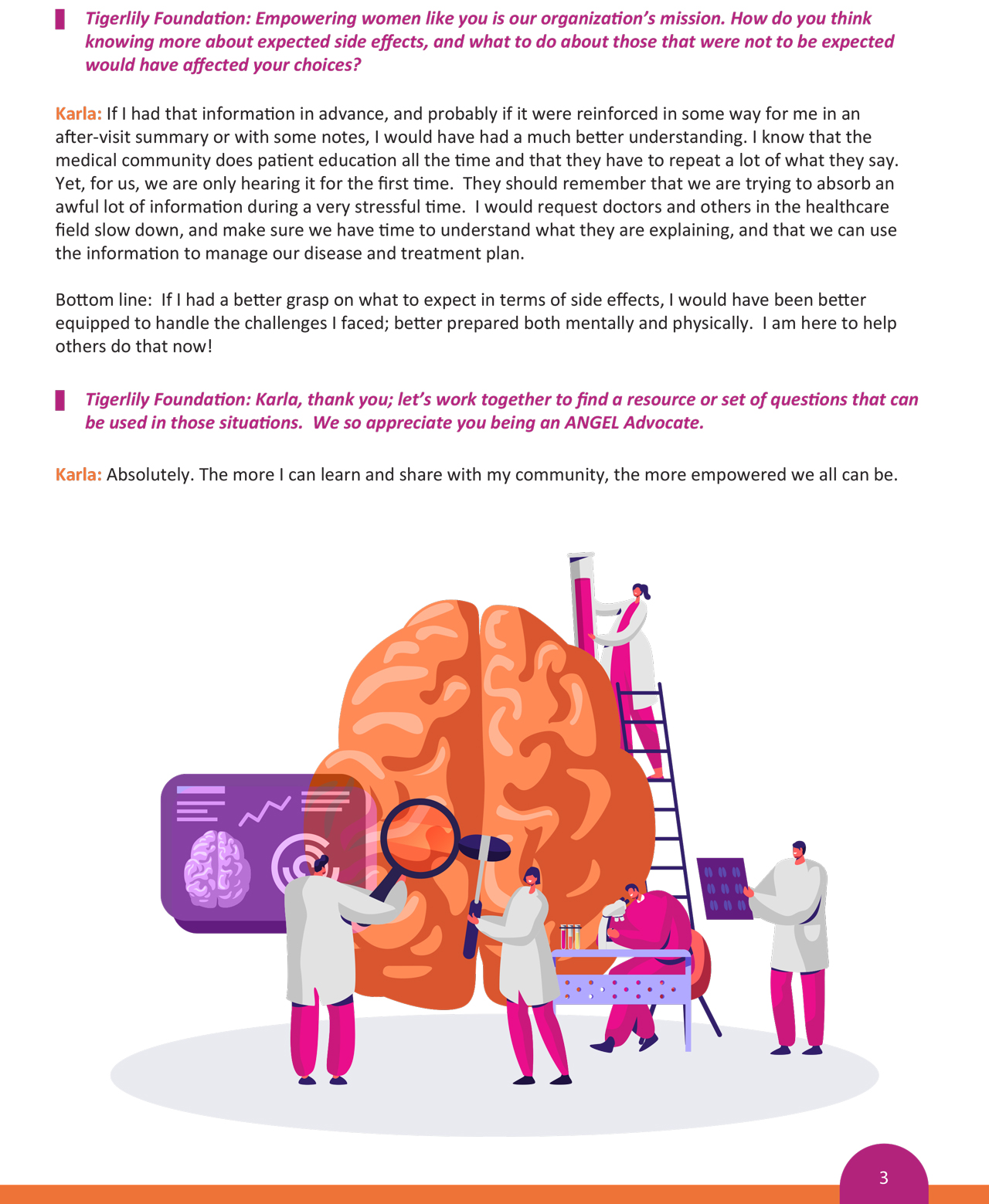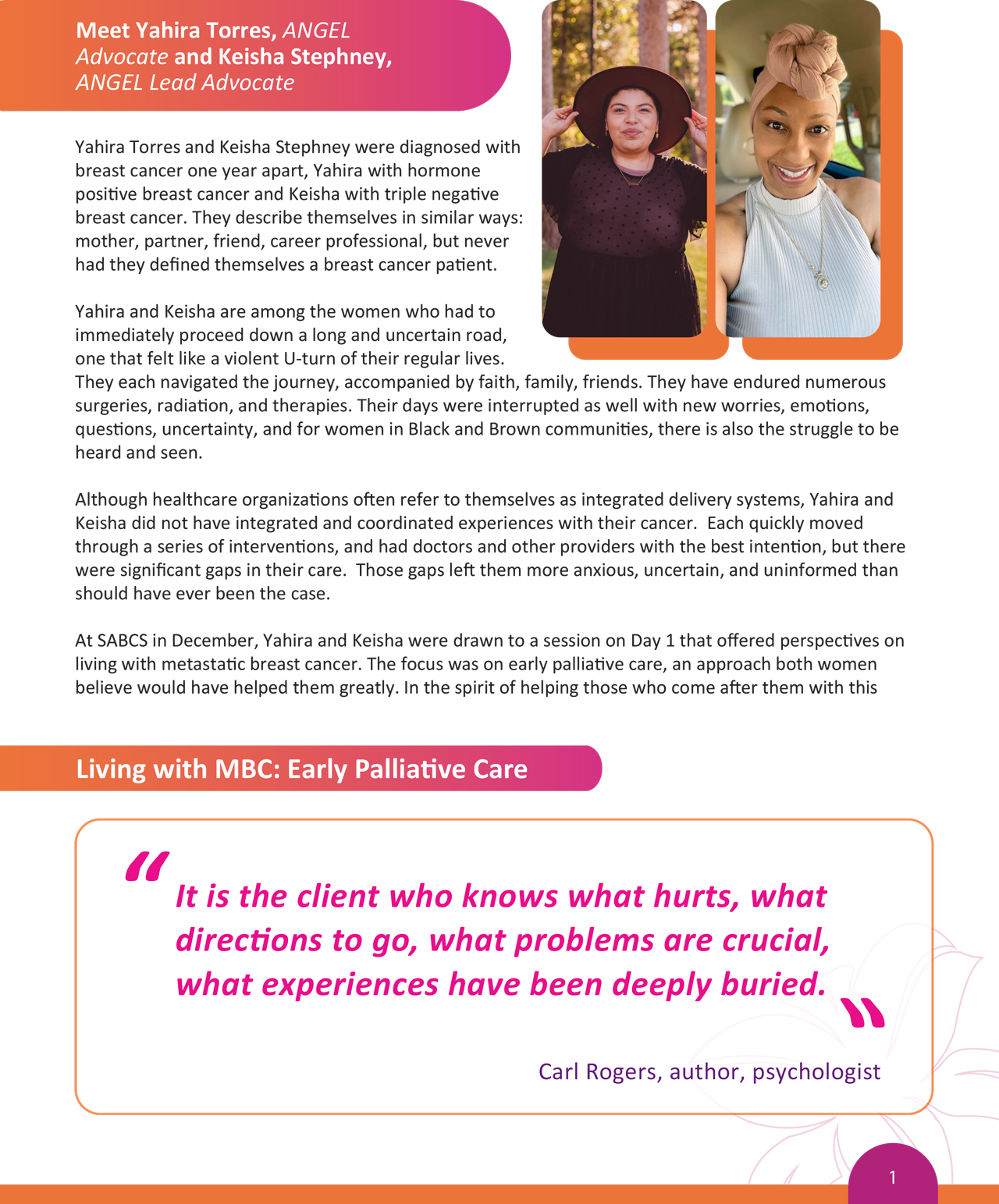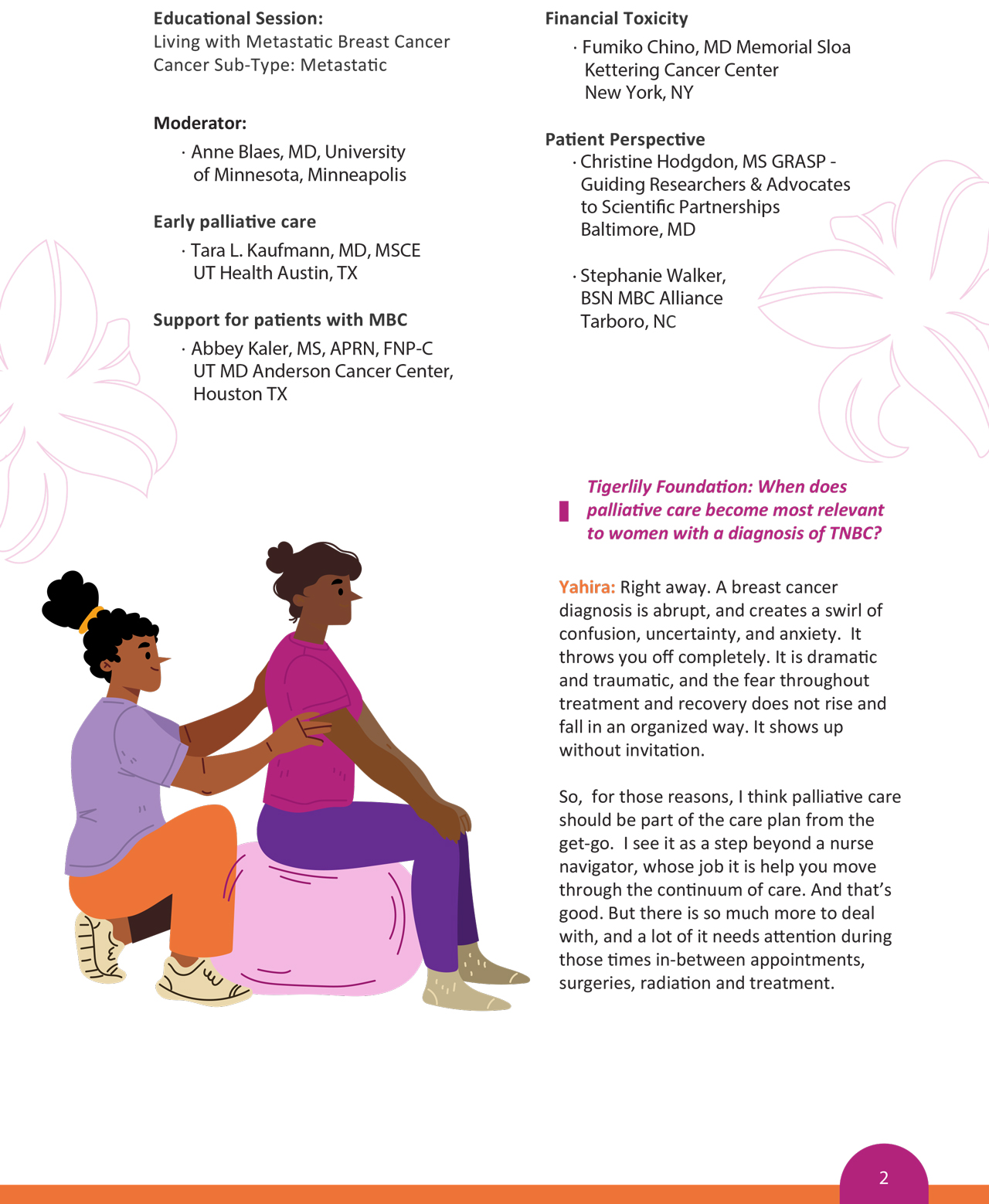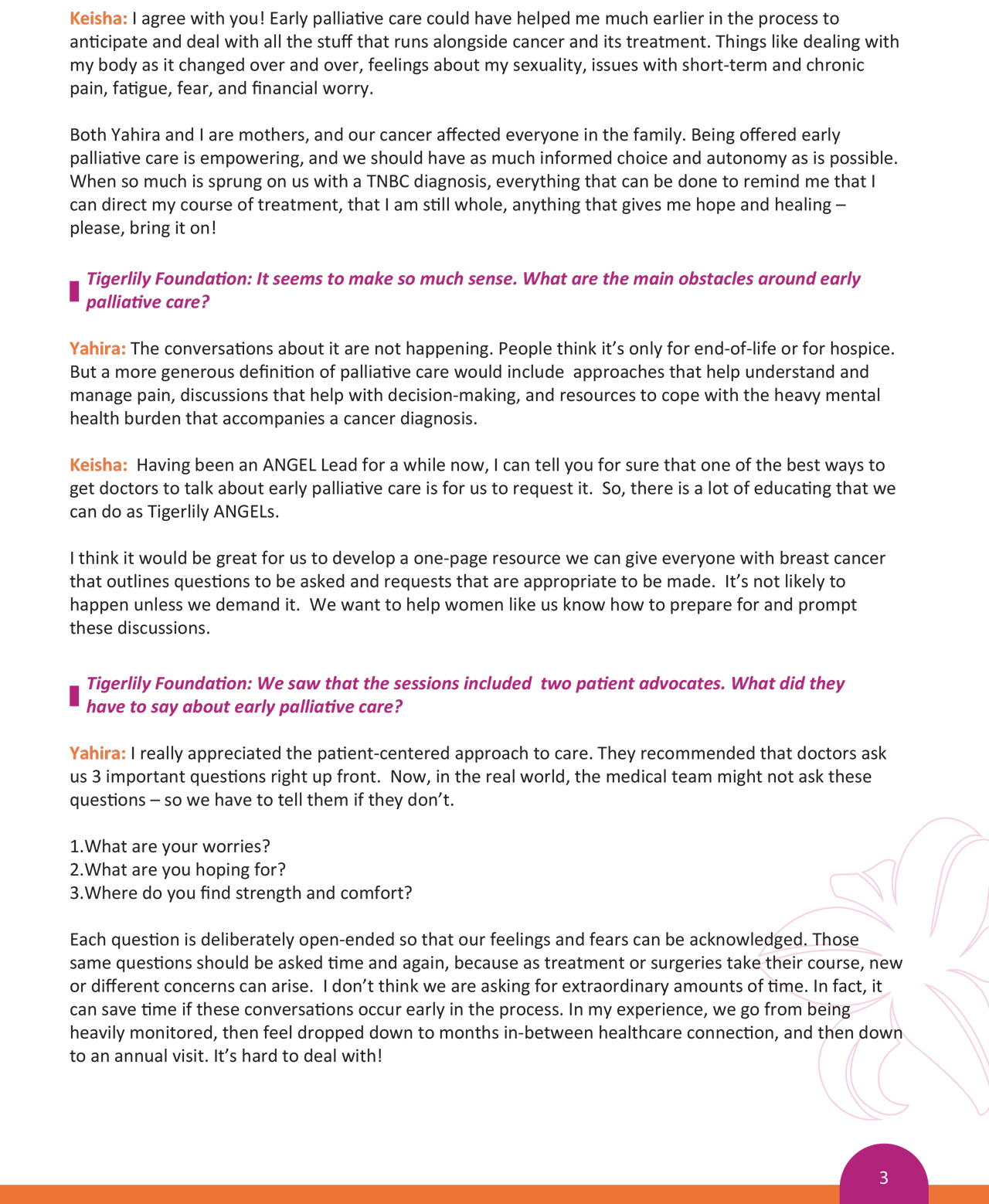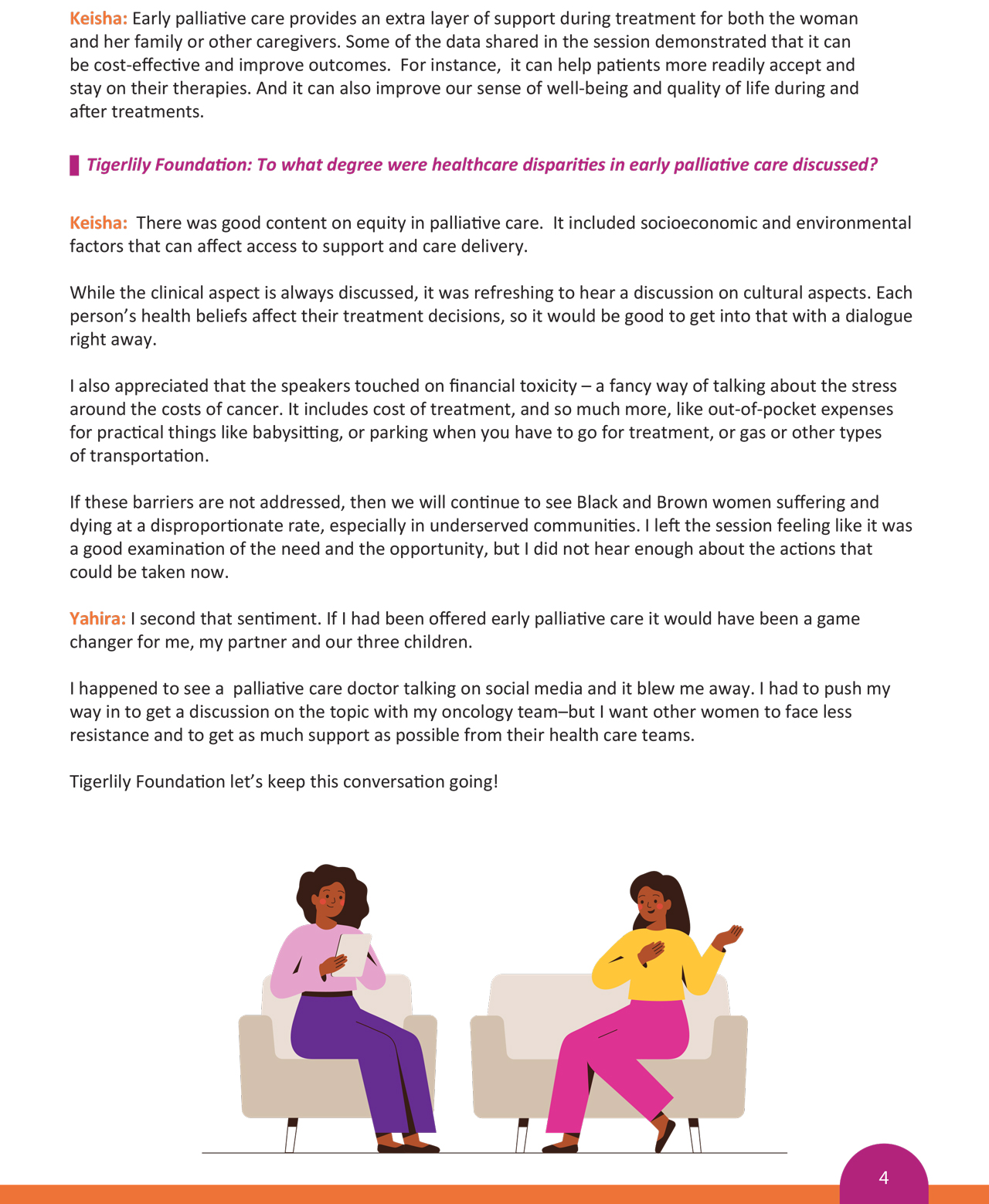Education, Advocacy, and Empowerment Bloom Eternal at Tigerlily Foundation
An interview with Maimah Karmo about her life’s work of empowering young women with breast cancer
Sixteen years ago, Maimah Karmo established the Tigerlily Foundation. Her vision was to create a global organization to provide education, awareness, advocacy, and support to young women before, during, and after breast cancer, and to transform the lives of patients as well as the healthcare ecosystem to achieve health equity for all.
Establishing a foundation with these goals is a huge undertaking, not to mention a noble one; but what’s astounding about Tigerlily’s founding is the timing. Maimah, a young mother to then 3-year-old Noelle, created Tigerlily while in the midst of receiving chemotherapy for triple-negative breast cancer.

The only way Maimah knew how to deal with or make sense of her diagnosis was to use her experiences to give back to this community—a community that she didn’t yet fully understand. She describes the decision to establish Tigerlily as divinely inspired as she recounts the evening she went to bed “bald, sick, and scared” and asked God to restore her spirit. In return, she would do whatever God asked of her.
She says she awoke a new person. Her mind flooded with new ideas, and she began writing them down as quickly as they came to her. Those ideas were the beginnings of the Tigerlily Foundation.
Today, Tigerlily Foundation is a national leader (with a growing global footprint) in breast cancer education, awareness, and advocacy for young women. Maimah reports that the work is enriching and beautiful.
I was fortunate enough to have the opportunity to speak with Maimah about the significance of the Tigerlily flower, the importance of advocacy, and the changes she’s seen in oncology care. What follows is our thoughtful exchange.
Curiosity is getting the better of me, why is the foundation named after the Tigerlily flower?

Lilies are perennial. They are dormant in the fall and winter, but they will bloom again in the spring. Just like a lily that loses its petals for a season, a woman going through breast cancer treatment may lose her hair, she may lose one or more breasts, but it is possible to come through treatment stronger, more beautiful, and transformed by the journey. She can bloom again, even in the midst of her journey.
Advocacy is a big part of the Tigerlily mission. How would you advise a newly diagnosed woman to advocate for herself?
When a woman is diagnosed, her most common initial reaction is fear. When she contacts Tigerlily, the very first thing we do is love her and reassure her that she is not alone. We’re here for her; we will hold her hand throughout the process.
Then, we listen. We ask about her immediate needs, and we listen closely so we can help to meet those needs.
Ultimately, we want to instill a badass mentality in her! (Please excuse the expression!) We want her to go from fearful to educated and empowered. An educated and empowered woman is best able to advocate for herself and make important, timely decisions about her healthcare options and planning. At Tigerlily, we have many programs to educate and empower our members. In fact, we just launched our “Barrier Toolkit” series to empower women to remove barriers to their care. The toolkits address topics such as health literacy, financial barriers, healthcare access, and other social issues in the healthcare system. Women can access and download these toolkits directly from our website.
What about women who have not experienced breast cancer firsthand, how does Tigerlily advocate for them?
While it’s important to reach women who are patients, it’s just as important to reach women who have not had breast cancer to teach them about their personal risk factors. We want all women to be better equipped to reduce their risk, access timely screening, detect cancer early, and access personalized and targeted treatments.
We teach women to live a healthy lifestyle in the hope of reducing risk; and while we don’t know how to prevent cancer, we want to find it early.
We advocate for all women to know their family health history. Even if you do not have breast cancer in your family, you can be your own health advocate by knowing your body, performing your breast self-exams each month, speaking up if something isn’t right, and talking with your family about your health history.
Women can explore these topics on our site. For example, our BREATHE Tv series features several episodes on the power of advocacy as well as the role family plays in understanding cancer risk.
Can you tell us about the Tigerlily ANGEL Advocacy Program?
Yes, of course. ANGEL stands for Advocate Now to Grow, Empower, & Lead. The ANGEL Advocacy Program works to address disparities and barriers to care for women of color, particularly black women, but it’s open to all women.
Women between the ages of 21 and 50 years who have been impacted by breast cancer can become an ANGEL Advocate. Advocates receive educational trainings on breast cancer and disparities that affect certain groups of women, as well as trainings on creating change, how to become a better self-advocate, and advocating on behalf of others. Once trained, we provide opportunities to join advisory boards or speak on panels. We give them tools to conduct community outreach. There are opportunities to join scientific platforms and partner with stakeholders, including pharmaceutical companies or other advocacy organizations, to serve as expert advisors locally and nationally. ANGEL Advocates have amazing opportunities to improve care and improve lives.
During your 16 years as a survivor, what has changed the most for women with breast cancer?
I believe general awareness of breast cancer has increased, and screening has become more available to women at younger ages. Also, survivorship support and psychosocial support are more accessible now.
Mostly, I feel like the patient’s voice is more highly respected and valued now. I strongly encourage all women going through breast cancer treatment to think of themselves as an expert. Just like your oncologist is an expert at treating cancer, you are an expert at living with cancer. As an expert, you are an equal partner on your healthcare team. As an equal partner, your voice should never be dismissed.
What still needs to change?
Health equity is still a major issue, and there’s a lot of work to be done to achieve equity in healthcare in this country. At Tigerlily, we launched our #InclusionPledge and received more than 10,000 signatures from community-based to global organizations and major cancer centers in several weeks. People who sign the pledge make specific, measurable, tangible actions that will result in health equity for black women.
Is there a Tigerlily success story you’d like to share?
Honestly, there are so many! I could tell you about the woman whose insurance company wouldn’t cover screening when she found a lump. We got involved and helped her navigate access to screening, and thankfully, it was not cancer. I could tell you about the woman who was homeless while navigating breast cancer, but with our support she’s now working and her family life is stable, as is her health. I could tell you about the young girl who volunteered at Tigerlily years ago and because of that experience chose to work in the healthcare field and still volunteers with us to make a difference. To me, every woman we come into contact with is a success story.
What about you? What is your biggest success?
I think that the biggest success for me personally is that I get to be here to raise my daughter. That’s my success. I just marked the 16th anniversary of my diagnosis. My daughter and I spent that day together; we had manicures and pedicures, we went out to dinner, and we just sat there and smiled at each other. Being able to do life with her is my biggest success and gift!

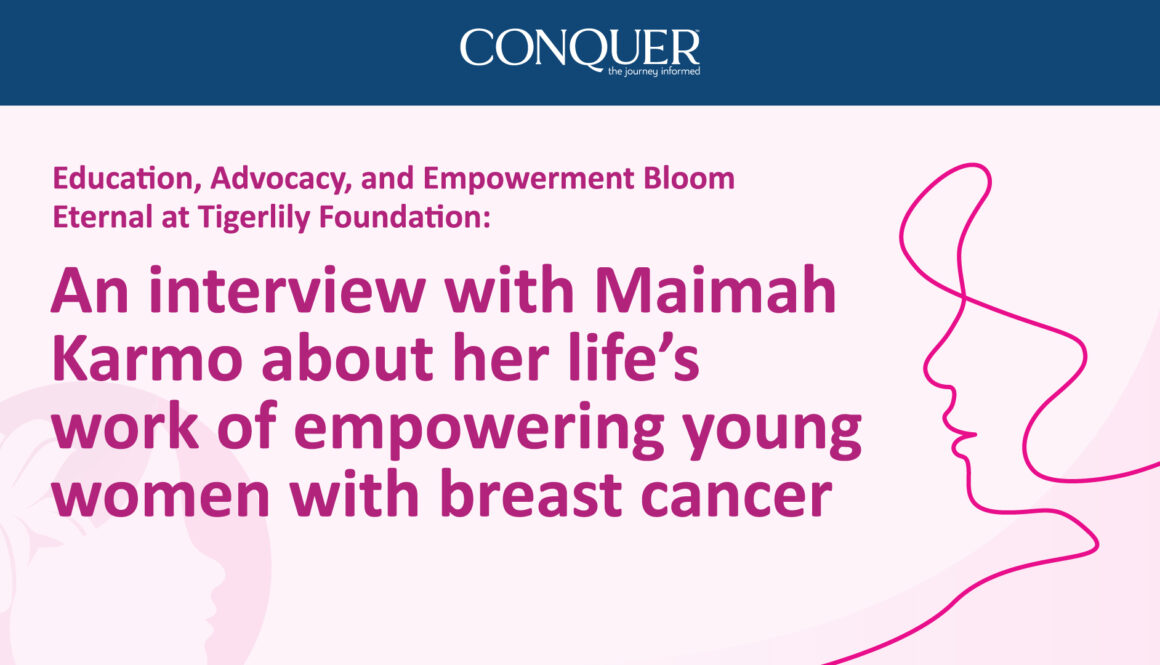

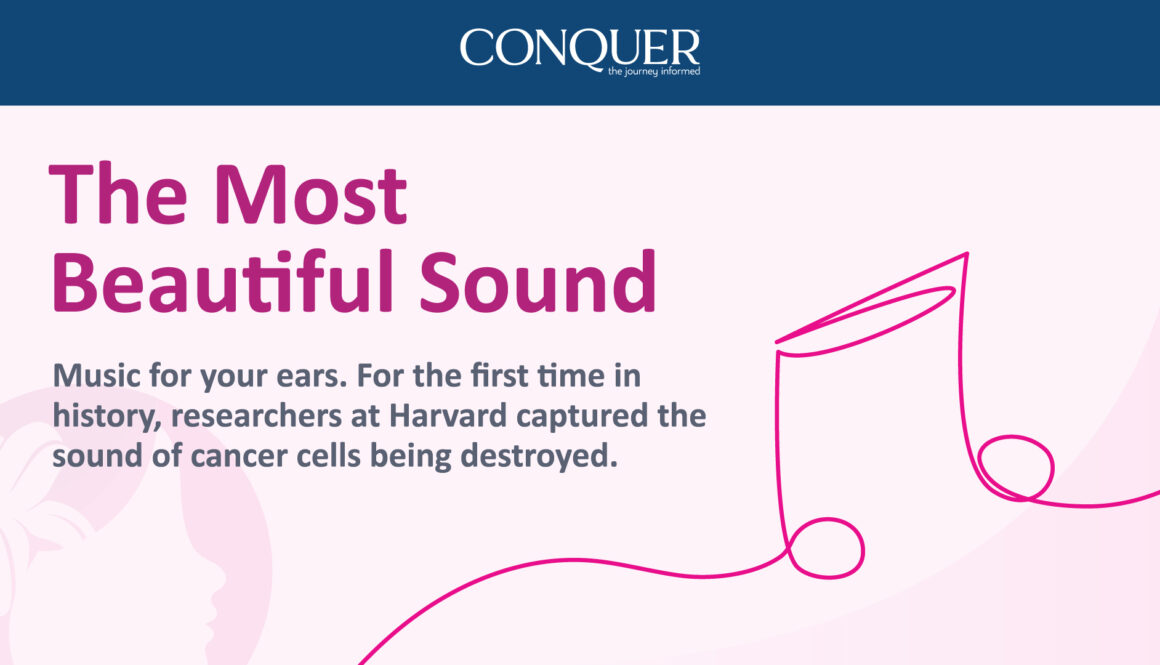


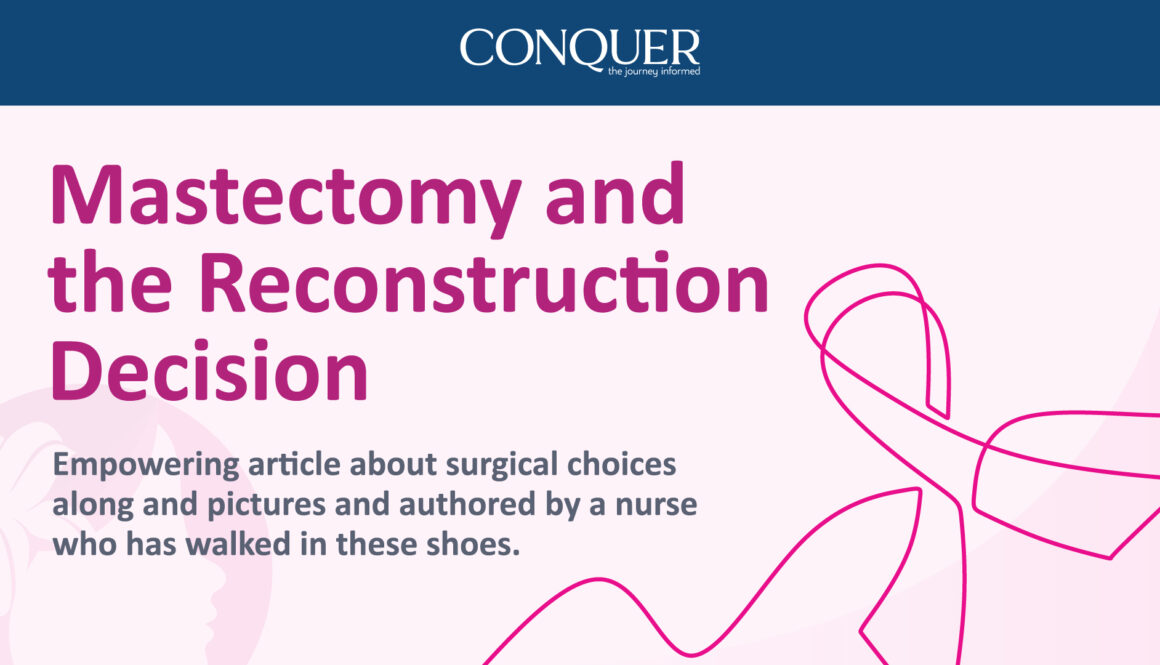

 That’s a lot of decision-making for someone who is still grappling with the news of a cancer diagnosis. Speaking from experience, the amount of information and required decision-making can feel overwhelming. Cancer treatment decisions are about protecting your life and your future; but especially with surgeries that change our appearance, they can also be about protecting our sense of self along the way.
That’s a lot of decision-making for someone who is still grappling with the news of a cancer diagnosis. Speaking from experience, the amount of information and required decision-making can feel overwhelming. Cancer treatment decisions are about protecting your life and your future; but especially with surgeries that change our appearance, they can also be about protecting our sense of self along the way. Amy chose a skin-sparing mastectomy with the intention of having reconstruction surgery later. She ultimately decided against reconstruction or even a surgery to have the extra skin removed and tucked flat—she just didn’t care enough to go through another surgery.
Amy chose a skin-sparing mastectomy with the intention of having reconstruction surgery later. She ultimately decided against reconstruction or even a surgery to have the extra skin removed and tucked flat—she just didn’t care enough to go through another surgery.


 Katelyn Carey, RN, is a nurse educator and author who specializes in the science of compassion. Using trauma and cognitive science in combination with 20 years’ experience in ER, hospice, and acute care, Katelyn teaches communication strategies and recovery tools that help patients and caregivers navigate stressful times successfully. She is author of Beauty After Breast Cancer.
Katelyn Carey, RN, is a nurse educator and author who specializes in the science of compassion. Using trauma and cognitive science in combination with 20 years’ experience in ER, hospice, and acute care, Katelyn teaches communication strategies and recovery tools that help patients and caregivers navigate stressful times successfully. She is author of Beauty After Breast Cancer.